- Home
- Wilkie Collins
The Two Destinies Page 7
The Two Destinies Read online
Page 7
children are kindred spirits. For timeand for eternity they are united one to the other. Put land and seabetween them--they will still be together; they will communicate invisions, they will be revealed to each other in dreams. Bind them byworldly ties; wed your son, in the time to come, to another woman, andmy grand-daughter to another man. In vain! I tell you, in vain! You maydoom them to misery, you may drive them to sin--the day of their unionon earth is still a day predestined in heaven. It will come! it willcome! Submit, while the time for submission is yours. You are a doomedman. I see the shadow of disaster, I see the seal of death, on yourface. Go; and leave these consecrated ones to walk the dark ways ofthe world together, in the strength of their innocence, in the light oftheir love. Go--and God forgive you!" In spite of himself, my father wasstruck by the irresistible strength of conviction which inspired thosewords. The bailiff's mother had impressed him as a tragic actress mighthave impressed him on the stage. She had checked the mocking answer onhis lips, but she had not shaken his iron will. His face was as hard asever when he turned my way once more.
"The last chance, George," he said, and counted the last number:"Three!"
I neither moved nor answered him.
"You _will_ have it?" he said, as he fastened his hold on my arm.
I fastened _my_ hold on Mary; I whispered to her, "I won't leave you!"She seemed not to hear me. She trembled from head to foot in my arms. Afaint cry of terror fluttered from her lips. Dermody instantly steppedforward. Before my father could wrench me away from her, he had said inmy ear, "You can give her to _me_, Master George," and had releasedhis child from my embrace. She stretched her little frail hands outyearningly to me, as she lay in Dermody's arms. "Good-by, dear," shesaid, faintly. I saw her head sink on her father's bosom as I wasdragged to the door. In my helpless rage and misery, I struggled againstthe cruel hands that had got me with all the strength I had left. Icried out to her, "I love you, Mary! I will come back to you, Mary! Iwill never marry any one but you!" Step by step, I was forced furtherand further away. The last I saw of her, my darling's head was stillresting on Dermody's breast. Her grandmother stood near, and shook herwithered hands at my father, and shrieked her terrible prophecy, inthe hysteric frenzy that possessed her when she saw the separationaccomplished. "Go!--you go to your ruin! you go to your death!" Whileher voice still rang in my ears, the cottage door was opened and closedagain. It was all over. The modest world of my boyish love and my boyishjoy disappeared like the vision of a dream. The empty outer wilderness,which was my father's world, opened before me void of love and void ofjoy. God forgive me--how I hated him at that moment!
CHAPTER IV. THE CURTAIN FALLS.
FOR the rest of the day, and through the night, I was kept a closeprisoner in my room, watched by a man on whose fidelity my father coulddepend.
The next morning I made an effort to escape, and was discovered beforeI had got free of the house. Confined again to my room, I contrivedto write to Mary, and to slip my note into the willing hand of thehousemaid who attended on me. Useless! The vigilance of my guardian wasnot to be evaded. The woman was suspected and followed, and the letterwas taken from her. My father tore it up with his own hands.
Later in the day, my mother was permitted to see me.
She was quite unfit, poor soul, to intercede for me, or to serve myinterests in any way. My father had completely overwhelmed her byannouncing that his wife and his son were to accompany him, when hereturned to America.
"Every farthing he has in the world," said my mother, "is to be throwninto that hateful speculation. He has raised money in London; he has letthe house to some rich tradesman for seven years; he has sold the plate,and the jewels that came to me from his mother. The land in Americaswallows it all up. We have no home, George, and no choice but to gowith him."
An hour afterward the post-chaise was at the door.
My father himself took me to the carriage. I broke away from him, witha desperation which not even his resolution could resist. I ran, I flew,along the path that led to Dermody's cottage. The door stood open; theparlor was empty. I went into the kitchen; I went into the upper rooms.Solitude everywhere. The bailiff had left the place; and his mother andhis daughter had gone with him. No friend or neighbor lingered near witha message; no letter lay waiting for me; no hint was left to tell me inwhat direction they had taken their departure. After the insulting wordswhich his master had spoken to him, Dermody's pride was concerned inleaving no trace of his whereabouts; my father might consider it as atrace purposely left with the object of reuniting Mary and me. I had nokeepsake to speak to me of my lost darling but the flag which she hadembroidered with her own hand. The furniture still remained in thecottage. I sat down in our customary corner, by Mary's empty chair, andlooked again at the pretty green flag, and burst out crying.
A light touch roused me. My father had so far yielded as to leave to mymother the responsibility of bringing me back to the traveling carriage.
"We shall not find Mary here, George," she said, gently. "And we _may_hear of her in London. Come with me."
I rose and silently gave her my hand. Something low down on the cleanwhite door-post caught my eye as we passed it. I stooped, and discoveredsome writing in pencil. I looked closer--it was writing in Mary's hand!The unformed childish characters traced these last words of farewell:
"Good-by, dear. Don't forget Mary."
I knelt down and kissed the writing. It comforted me--it was like afarewell touch from Mary's hand. I followed my mother quietly to thecarriage.
Late that night we were in London.
My good mother did all that the most compassionate kindness could do(in her position) to comfort me. She privately wrote to the solicitorsemployed by her family, inclosing a description of Dermody and hismother and daughter and directing inquiries to be made at the variouscoach-offices in London. She also referred the lawyers to two ofDermody's relatives, who lived in the city, and who might knowsomething of his movements after he left my father's service. When shehad done this, she had done all that lay in her power. We neither of uspossessed money enough to advertise in the newspapers.
A week afterward we sailed for the United States. Twice in that intervalI communicated with the lawyers; and twice I was informed that theinquiries had led to nothing.
With this the first epoch in my love story comes to an end.
For ten long years afterward I never again met with my little Mary; Inever even heard whether she had lived to grow to womanhood or not. Istill kept the green flag, with the dove worked on it. For the rest,the waters of oblivion had closed over the old golden days at GreenwaterBroad.
CHAPTER V. MY STORY.
WHEN YOU last saw me, I was a boy of thirteen. You now see me a man oftwenty-three.
The story of my life, in the interval between these two ages, is a storythat can be soon told.
Speaking of my father first, I have to record that the end of his careerdid indeed come as Dame Dermody had foretold it. Before we had been ayear in America, the total collapse of his land speculation was followedby his death. The catastrophe was complete. But for my mother's littleincome (settled on her at her marriage) we should both have been lefthelpless at the mercy of the world.
We made some kind friends among the hearty and hospitable people of theUnited States, whom we were unaffectedly sorry to leave. But there werereasons which inclined us to return to our own country after my father'sdeath; and we did return accordingly.
Besides her brother-in-law (already mentioned in the earlier pages of mynarrative), my mother had another relative--a cousin named Germaine--onwhose assistance she mainly relied for starting me, when the time came,in a professional career. I remember it as a family rumor, that Mr.Germaine had been an unsuccessful suitor for my mother's hand in thedays when they were young people together. He was still a bachelor atthe later period when his eldest brother's death without issue placedhim in possession of a handsome fortune. The accession of wealth madeno difference in his habits of life: he was
a lonely old man, estrangedfrom his other relatives, when my mother and I returned to England. IfI could only succeed in pleasing Mr. Germaine, I might consider myprospects (in some degree, at least) as being prospects assured.
This was one consideration that influenced us in leaving America. Therewas another--in which I was especially interested--that drew me back tothe lonely shores of Greenwater Broad.
My only hope of recovering a trace of Mary was to make inquiries amongthe cottagers in the neighborhood of my old home. The good bailiff hadbeen heartily liked and respected in his little sphere. It seemed atleast possible that some among his many friends in Suffolk might havediscovered traces of him, in the year that had passed since I had leftEngland. In my dreams of Mary--and I dreamed of her constantly--thelake and its woody banks formed a frequent background in the visionarypicture of my lost

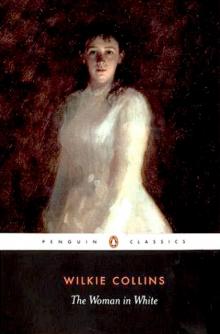 The Woman in White
The Woman in White The Queen of Hearts
The Queen of Hearts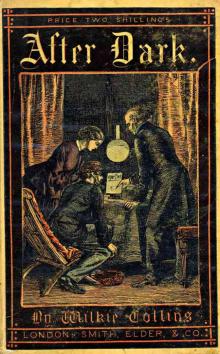 Miss Jeromette and the Clergyman
Miss Jeromette and the Clergyman Man and Wife
Man and Wife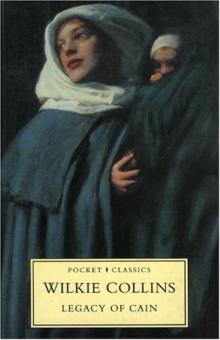 The Legacy of Cain
The Legacy of Cain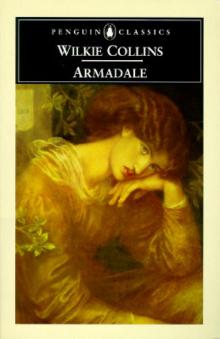 Armadale
Armadale The Frozen Deep
The Frozen Deep John Jago's Ghost or the Dead Alive
John Jago's Ghost or the Dead Alive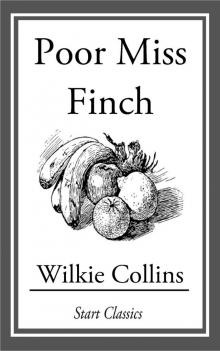 Poor Miss Finch
Poor Miss Finch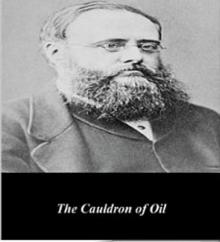 The Cauldron of Oil: A Case Worth Looking At
The Cauldron of Oil: A Case Worth Looking At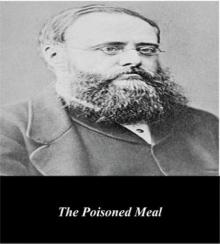 The Poisoned Meal
The Poisoned Meal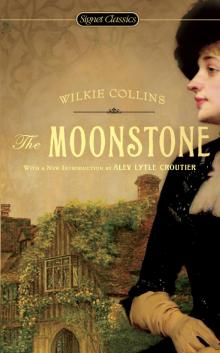 The Moonstone
The Moonstone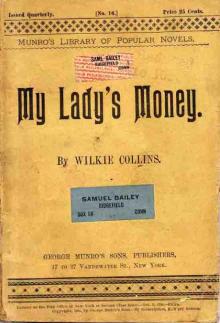 My Lady's Money
My Lady's Money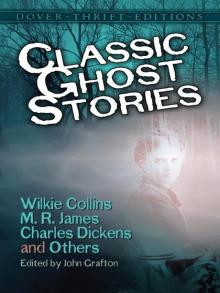 Classic Ghost Stories
Classic Ghost Stories Jezebel's Daughter
Jezebel's Daughter The Devil's Spectacles
The Devil's Spectacles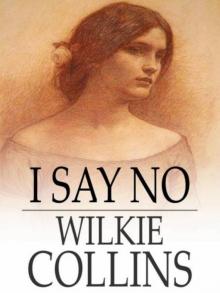 I Say No
I Say No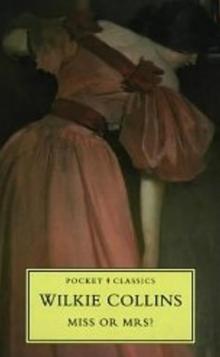 Miss or Mrs.?
Miss or Mrs.?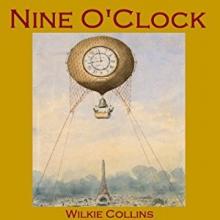 Nine O'Clock
Nine O'Clock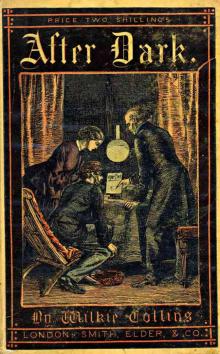 The Lawyer's Story of a Stolen Letter
The Lawyer's Story of a Stolen Letter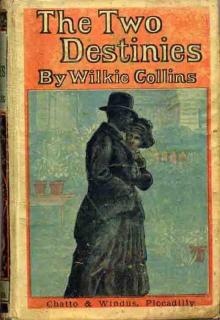 The Two Destinies
The Two Destinies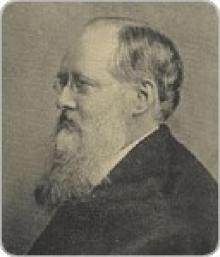 Mr. Percy and the Prophet
Mr. Percy and the Prophet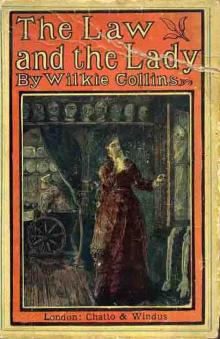 The Law and the Lady
The Law and the Lady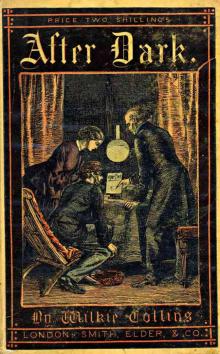 The Nun's Story of Gabriel's Marriage
The Nun's Story of Gabriel's Marriage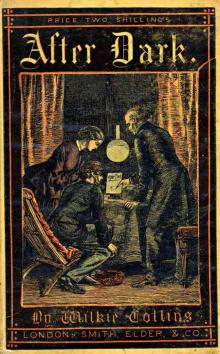 After Dark
After Dark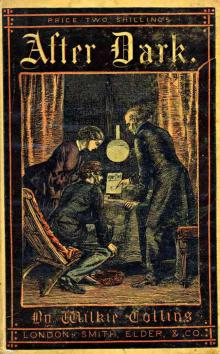 Mr. Captain and the Nymph
Mr. Captain and the Nymph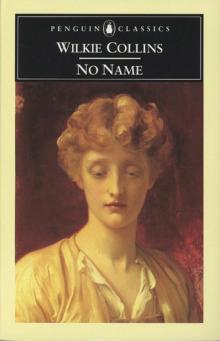 No Name
No Name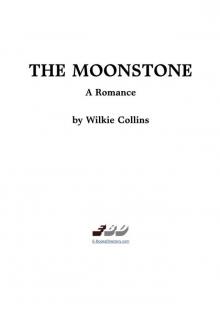 The Moonstone (Penguin Classics)
The Moonstone (Penguin Classics) Antonina
Antonina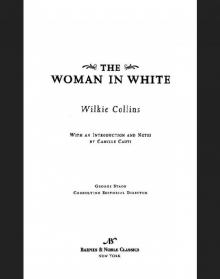 Woman in White (Barnes & Noble Classics Series)
Woman in White (Barnes & Noble Classics Series)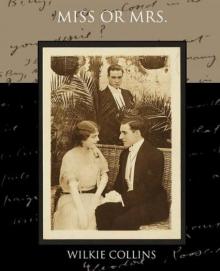 Miss or Mrs
Miss or Mrs The Dead Alive
The Dead Alive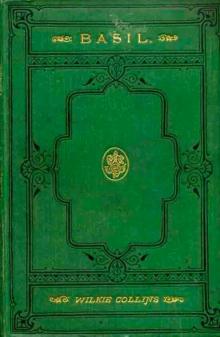 Basil
Basil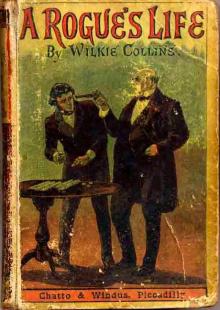 A Rogue's Life
A Rogue's Life The New Magdalen
The New Magdalen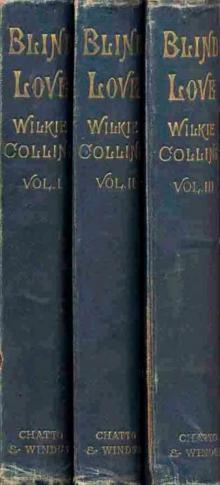 Blind Love
Blind Love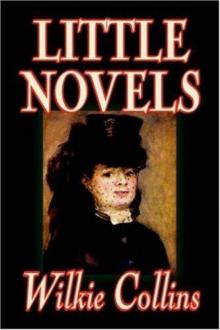 Little Novels
Little Novels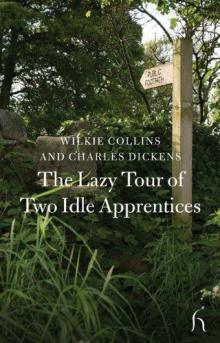 The Lazy Tour of Two Idle Apprentices
The Lazy Tour of Two Idle Apprentices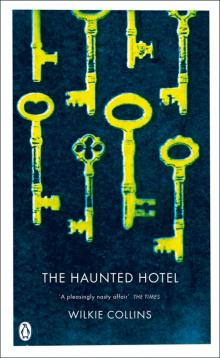 The Haunted Hotel
The Haunted Hotel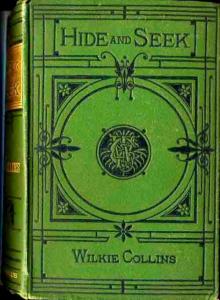 Hide and Seek
Hide and Seek